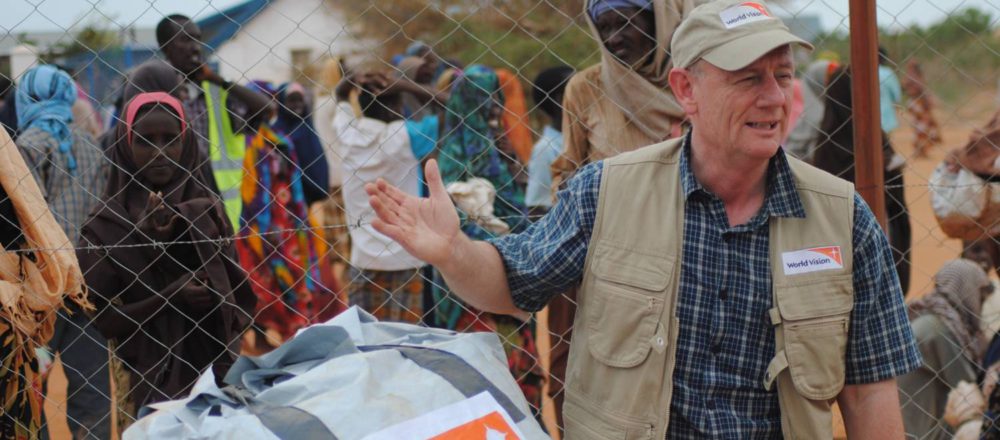By Tim Costello. This article is part of our February 2013 focus on Religion and Human Rights.
Join Right Now in an interactive online discussion with World Vision Australia CEO Tim Costello on Tuesday 19 February 2013, from 12.00 to 1.00 pm. Tim will be online to respond to your comments and questions in the ‘comments’ section of his article below. Tim is also happy to discuss the themes of development, religion and human rights more broadly, so please join in the discussion!
The major world religions have quite distinct understandings of the relationship between the human person, the world and the divine. And within each of the religions there can be a variety of perspectives. But all of them have at their heart the idea that human life is distinct, meaningful and purposeful.
In the Christian tradition, drawing heavily on the roots of Christianity in Judaism, we find the concept of human dignity. In some ways this historical and religious idea has been central to forming the contemporary and secular idea of human rights. This is the idea that every person has an innate, intrinsic right to respect and ethical treatment, simply because they are human. The Christian (and Jewish) view of human dignity reflects the idea of humans as being made in the image of God. Human life is sacred, and must be protected, because human beings have inherent value, being the clearest reflection of God in the world.
Human life is sacred, and must be protected, because human beings have inherent value, being the clearest reflection of God in the world.
The concept of human dignity has been influential beyond Christian thinking, however. In the sense that it elevates the concern for the human person above all other concerns, and that it sees the human person as having rights and attributes that can never be taken away or ignored, it sets the scene for the modern concept of human rights. The idea of universal human rights, applicable everywhere, at all times and to everybody, is fundamental to modern society – the starting point is that rights are inherent and inalienable. That is, they don’t depend on any particular qualities in the individual, they don’t need to be earned or bestowed, and they don’t depend on any kind of legal mandate. And they cannot be taken away.
One thing that is important here is to recognise that the religious and secular world views are not diametrically opposite, as much contemporary discourse would have it. If you look at the opening words of the Universal Declaration of Human Rights, they are quite similar to the sentence on human dignity in the catechism of the Catholic Church.
Another way that the holistic religious world view has translated itself in the modern world is the presence of faith-inspired organisations working in humanitarian, peace-making and development work. World Vision is one of these, and our faith foundation certainly is central to our motivation and the way we carry out our work.
We don’t engage in proselytism, and we work cooperatively with people of all faiths and those without a faith. In fact World Vision has more Muslim employees than any other NGO in the world, including Muslim NGOs. We strive to serve people everywhere without regard to their race, religion or politics.
In practice, it does sometimes happen that the variety of freedoms and rights that we try to uphold can come into conflict with one another. I believe that sensible compromise and a focus on the spirit of human rights is critical. Differences are best overcome through respectful dialogue and when necessary, a bit of compromise and give and take. A legalistic approach to rights isn’t always the best way to harmony and peace in the long run – it’s very important to take all opportunities to build trust and understanding.
A legalistic approach to rights isn’t always the best way to harmony and peace in the long run – it’s very important to take all opportunities to build trust and understanding.
My own journey towards my current work has been very much driven by my faith convictions and my spiritual development. For example, the time I spent as a Baptist minister in St Kilda brought home to me the reality of what life is like for people who are on the margins of society – people who are homeless, struggling with addiction, struggling with keeping life together in a society that can be uncaring, hostile and materialistic. The picture of human dignity – life in all its fullness – that I saw in a holistic reading of Christian scripture just put into stark contrast the reality of life on the streets, and when you see that huge gap between what is and what ought to be, then you feel compelled to do something about it. And it’s not such a stretch from engaging with poverty and marginalisation in an Australian city to seeing the bigger scale (but equally human) problems that affect the global poor.


